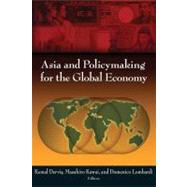- ISBN: 9780815704218 | 0815704216
- Cover: Paperback
- Copyright: 4/14/2011
Established in the aftermath of the Asian financial crisis, the G-20 has served as a high-level platform for discusssing economic analyses and policy responses since 1999. During the current global financial crisis, the G-20's role has moved toward that of global crisis committee. Still, it is unclear how --indeed, if --the G-20 can achieve and maintain a satisfactory degree of coordination among members as they emerge from the current crisis.In this concise volume, eminent international economists examine the changing role of the G-20 and the increased influence of Asian nations in that and relevant multilateral organizations such as the International Monetary Fund. Kemal Dervis investigates whether the G-20 will achieve a satisfactory degree of coordination among systemically important countries and what lessons can be drawn in this regard from the crisis. Masahiro Kawai assesses financial regulatory reforms proposed at recent G-20 summits with an emphasis on their feasibility in key Asian financial systems. Domenico Lombardi analyzes the debate on IMF reform through the lenses of Asian countries. A concludingchapter discusses the potential for greater policy coordination among the United States and Asian giants India, China, and Japan, as well as the likely ramifications of such stepped-up cooperation and the benefits anticipated by each party.ContentsForeword (Haruhiko Kuroda)1. Introduction2. Global Macroeconomic Policies beyond the Crisis: The G-20 and the Role of Asian Countries3. Domestic Financial Regulatory Reforms: The G-20 Recommendations through Asian Lenses4. The IMF: Resources, Roles, and Reforms from an Asian Perspective5. The Asian Giants and the United States: What Are the Benefits for Policy Coordination?






